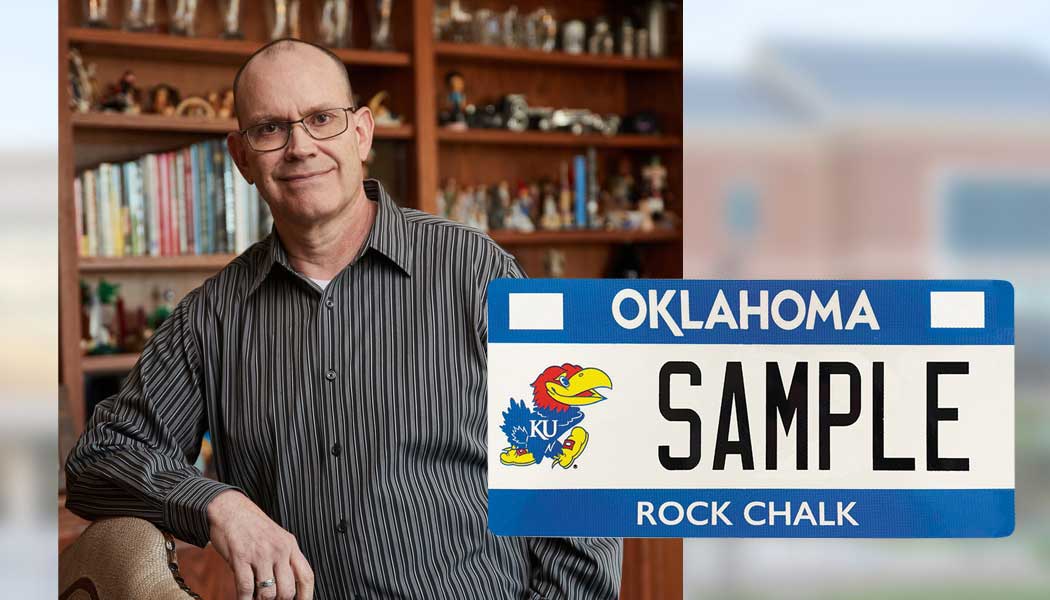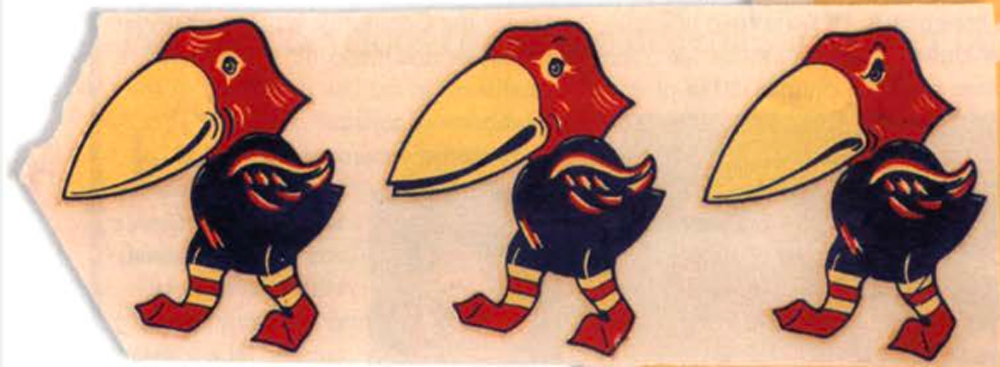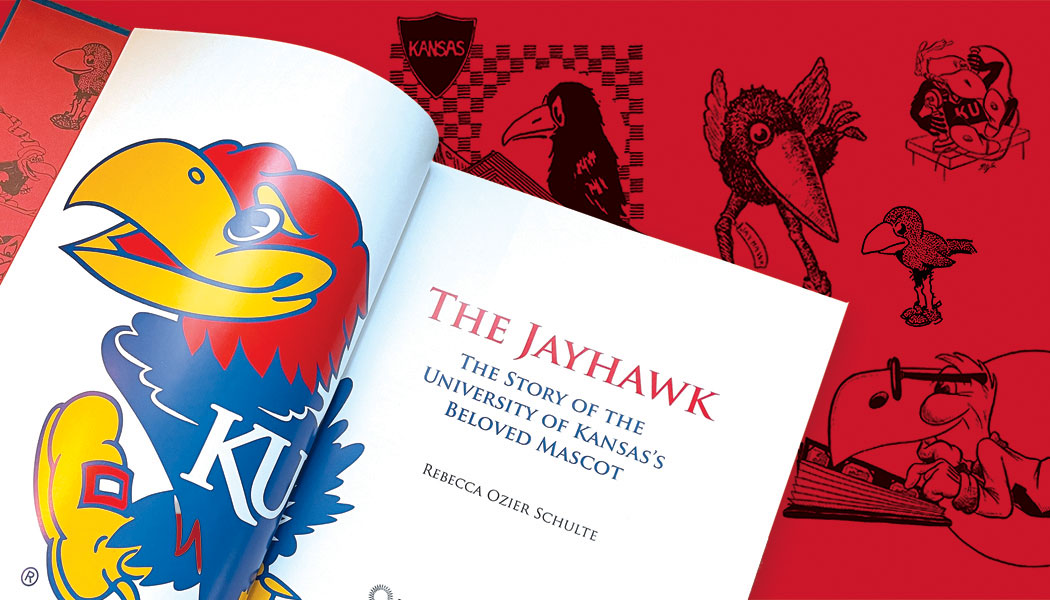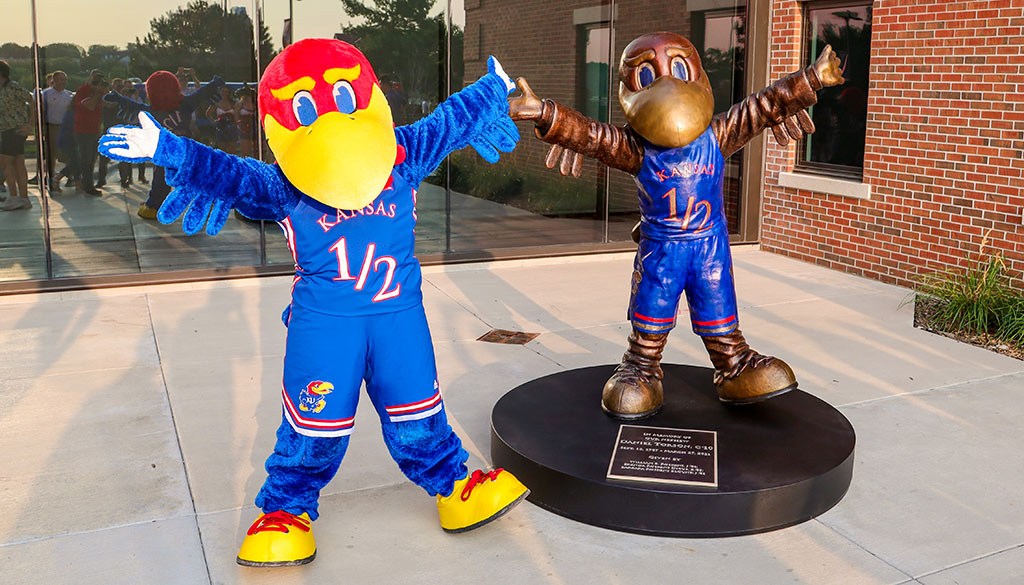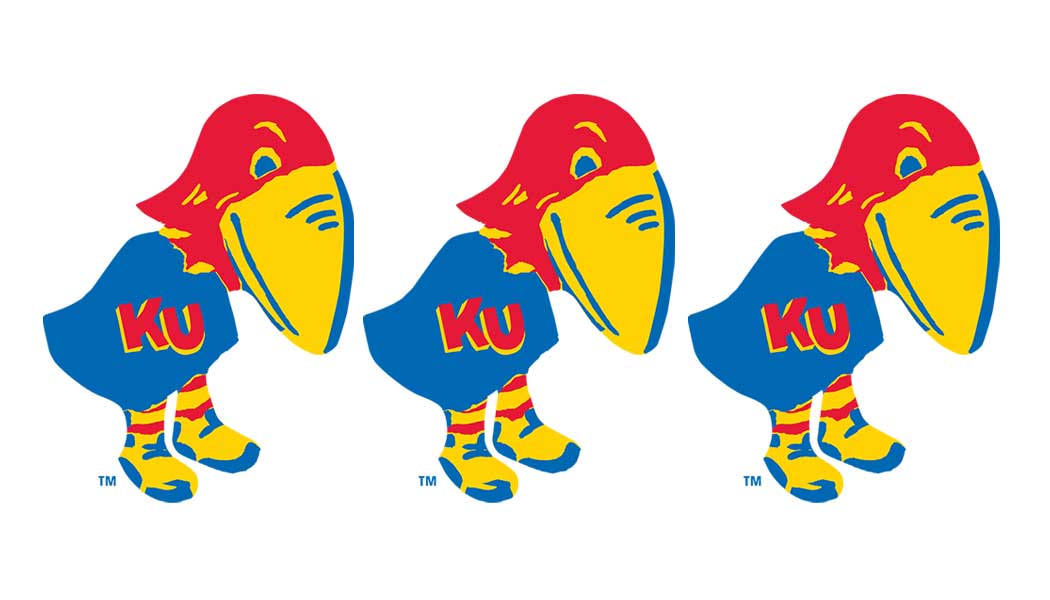OK to proceed: Bringing a Jayhawk license plate to Oklahoma
After Oklahoma’s approval of a KU license plate, all that’s needed are Jayhawks who are ready to ride.

Geoff Legler attended the University of Oklahoma, not KU, but he did spend a lot of time in Lawrence when he was dating the Jayhawk who would become his wife, Katrina Conrad Legler, c’92. More campus visits followed when they sent their two children to KU: Käte-Marie Legler Parsons, c’22, j’22, and Mathias Legler, a senior in the School of Business.
“I like KU,” Legler says. “The attitude that graduates and athletic fans have is like one big family. I like that camaraderie.”
So when the couple pulled up to a stoplight in their hometown of Norman last year and spied a car with an Oklahoma license plate bearing the Power Cat and the phrase Go Wildcats!, Legler was nonplussed.
“We’d never seen an Oklahoma tag for a school outside the state, hadn’t heard anything about it,” he recalls. “We were both kind of like, ‘Hmm, that’s weird.’ I said to my wife, ‘Well, that just doesn’t sit right with me, that Kansas State has a plate and KU doesn’t.’”
A U.S. Air Force veteran who is now a safety officer in the Oklahoma National Guard, Legler understands the state’s rules for making specialty plates available to drivers. Through his work with the Guard, he has experience with the creation and approval of specialized plates of a military nature, including one commemorating Operation Iraqi Freedom, which adorns his own car.
He contacted his state representative and got the KU tag added to a bill already being written to introduce a pair of new military-themed license plates. Legler then worked with the Alumni Association’s Dwight Parman, assoc., chief financial officer and executive vice president, and Susan Younger, f’91, creative director, to get the KU plates designed and submitted to Service Oklahoma, the state agency responsible for distributing automobile plates. The Oklahoma Legislature passed the bill, only to see it vetoed by Gov. Kevin Stitt, who singled out the Jayhawk tag as the reason for his decision. In May, the Legislature overrode the governor’s veto, opening the door for alumni, fans and friends of KU in the state to sport their Jayhawk pride on their rides.
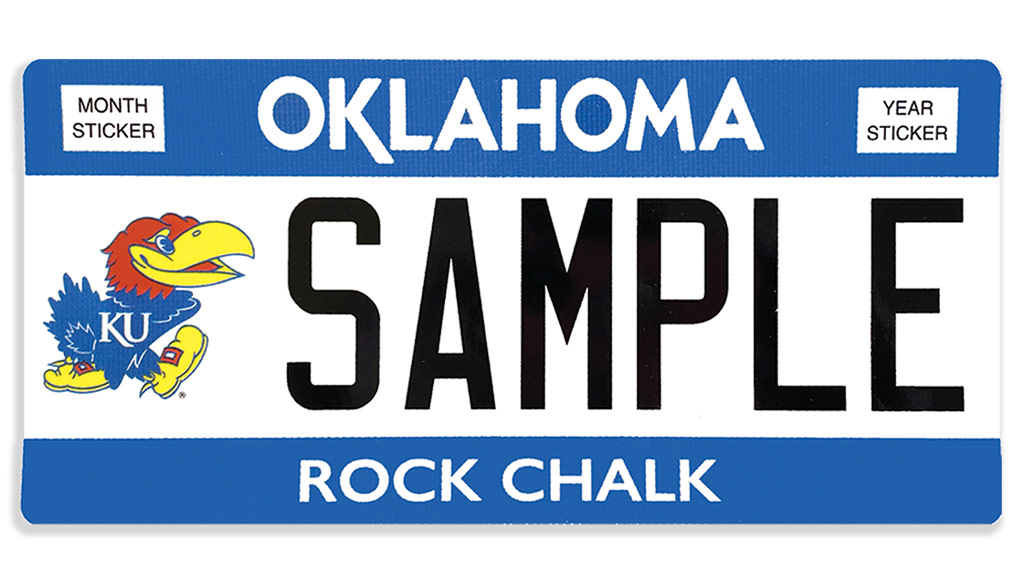
“Geoff bird-dogged this from start to finish; he was the one who drove the whole thing,” says Parman, who notes that a similar effort in Oklahoma a few years ago hit a brick wall when the Legislature balked. “It just shows that it’s key to have someone on the ground like Geoff who understands the local process—which is different in every state—and can communicate with lawmakers. Full credit to him for doing that.”
The legislation requires at least 100 prepaid applications for the specialty plate by May 1 or no Jayhawk plates will be manufactured. For more information on cost and how to order, visit the Alumni Association’s Jayhawk license plate page.
Legler hopes Jayhawks will come through, making Oklahoma the third state—along with Texas and Maryland—to offer KU specialty plates outside Kansas. He already has plans for a new project later this year: getting the Legislature to pass an addendum that would allow the Jayhawk tags to be personalized.
“It feels good to know that I was able to help with this process,” Legler says. “It’s a lasting contribution, hopefully, to the University and the state of Oklahoma.”
Editor’s note: Requirements and procedures for specialty license plates vary widely from state to state. If you are interested in making Jayhawk plates available in your state, please contact legislators or other appropriate officials to learn more about your state’s process for approving and creating new specialty plates.
Steven Hill is associate editor of Kansas Alumni magazine.
Photo by Charlie Neuenschwander
/
